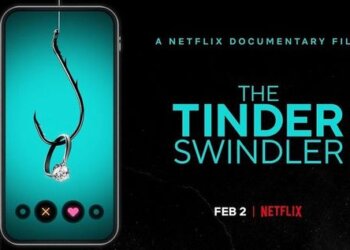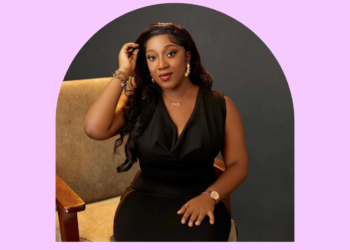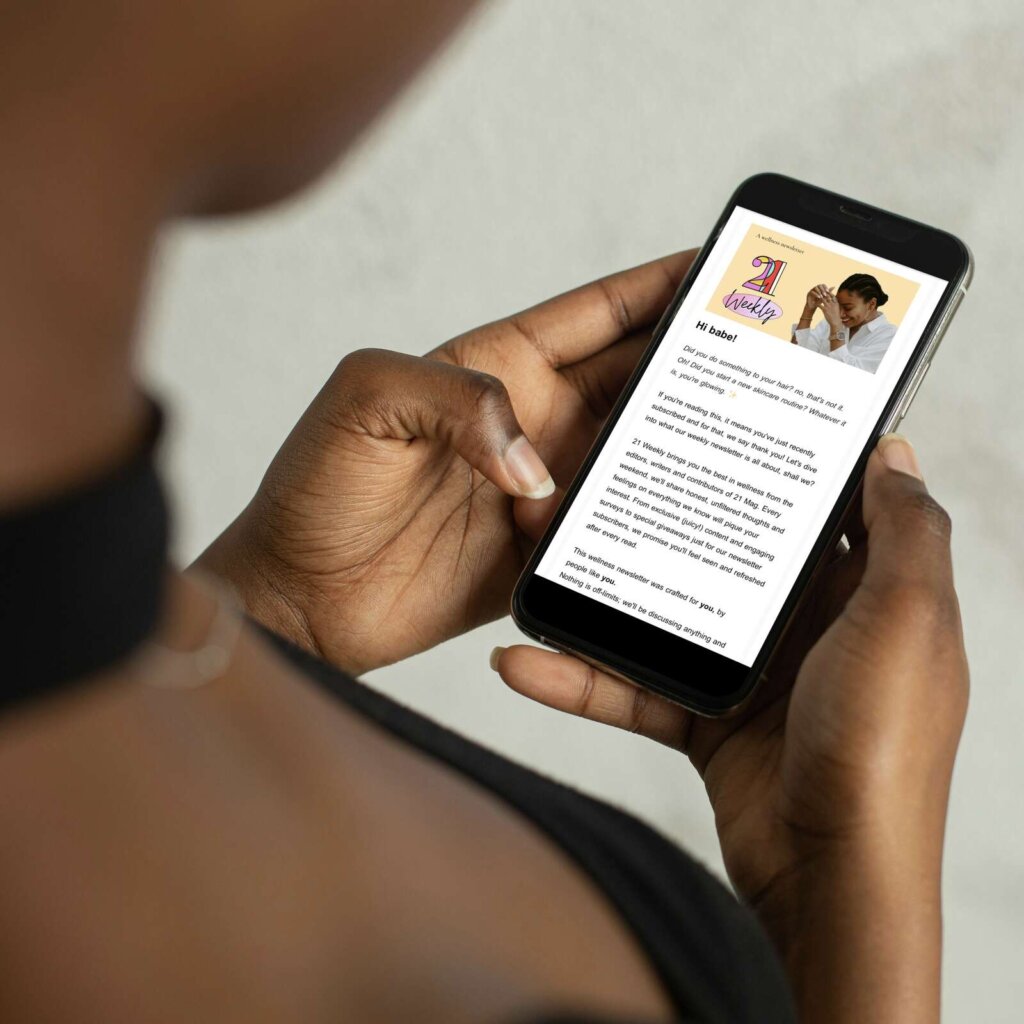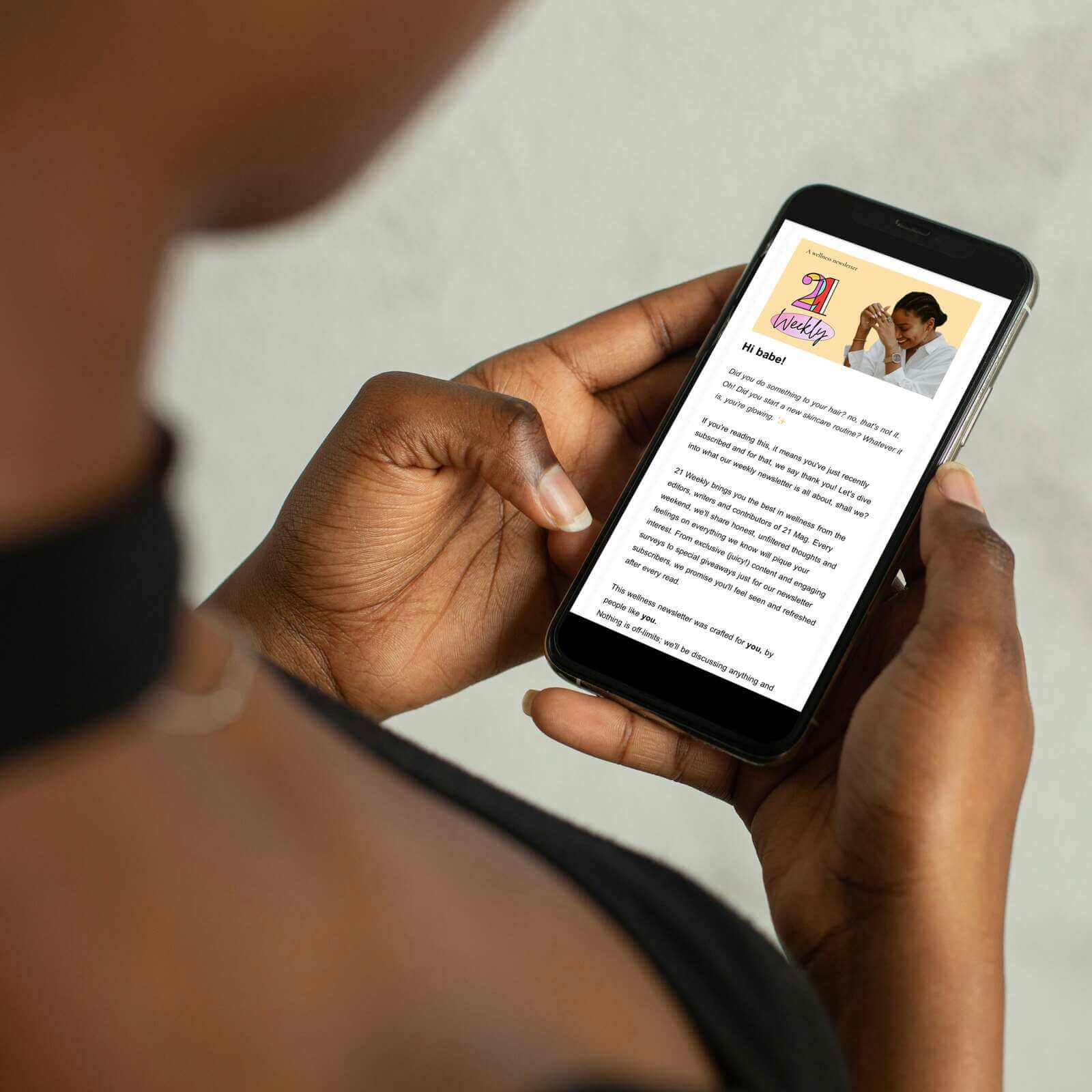No products in the cart.
I Saw Stephanie Coker’s ‘Where the Heck is My Period?’—Here Are 8 Reasons Why You Should Too
“Polycystic ovary syndrome (PCOS) is a common hormonal condition that affects women of reproductive age. It usually starts during adolescence, but symptoms may fluctuate over time. It can cause hormonal imbalances, irregular periods, excess androgen levels and cysts in the ovaries.
Irregular periods, usually with a lack of ovulation, can make it difficult to become pregnant. PCOS is a leading cause of infertility. It is a chronic condition and cannot be cured. However, some symptoms can be improved through lifestyle changes, medications and fertility treatments. The cause of PCOS is unknown, but women with a family history or type 2 diabetes are at higher risk”-WHO.
Stephanie Coker, a renowned Nigerian media personality, actress, and entrepreneur, widely known for her work in the entertainment industry, including hosting shows like The Voice Nigeria and MTV Base Africa, made the brave decision to embark on her latest endeavour, the documentary, Where the Heck is My Period? This film delves into the often-overlooked topic of Polycystic Ovary Syndrome (PCOS).
Coker-Aderinokun and director Michael Akinrogunde take us on a journey with eleven Nigerian women who vulnerably and honestly tell us their, in many ways, heartbreaking stories. In this piece, I explore the significance of her documentary and highlight eight compelling reasons why it’s a must-watch for everyone.
PCOS is a Leading Cause of Infertility Worldwide
The World Health Organisation shares that over 70% of women affected by PCOS go undiagnosed worldwide, despite the clear and scientific fact that polycystic ovary syndrome (PCOS) affects an estimated 8–13% of reproductive-aged women. The symptoms of PCOS are often long-term health problems that affect physical and emotional well-being.
One of these symptoms is anovulation—a leading cause of infertility. In this documentary, these amazing women, including Coker herself, narrate their struggles with denying pregnancies because of missed periods and, later in life, soliciting anyone, the universe and God for a positive pregnancy test. They tell us the pain they went through time and time again with negative pregnancy tests, expensive medical procedures that don’t work and even the physical pain of attempting to conceive the child that many of them longed for.
We follow the narrative as some eventually get positive tests, we mourn as a few tell us how they lose their children, others accept their faith, and we smile for the few who are fine with the diagnosis because they never wanted kids anyway.
“She lived for 30 minutes. I watched her breathe to death.”
Aishatu Muhammed
The Diverse Women From Different Walks of Life Who Made the Brave Decision to Tell Their Stories
One of the first elements that pull you into this film is the diverse women who tell the same story. This highlights that this syndrome does not pick and choose based on class, social status, religion or tribe. The one common thing between them is that they are all women and that this is not something they could have seen coming.
No one knows the cause of PCOS. The only thing that could key you into it is if you are aware of a family history of the syndrome. Meaning, that either your mum, her mum, your dad’s mum or someone down the line had it, so you may as well. The second possible indication is if you have type 2 diabetes. Women with this disease are at a higher risk of PCOS.
You Have Irregular and Heavy Periods
Too often, women are told that their health worries are all in their heads. Especially when it comes to menstruation. What is crazy is that women are often the ones who are quick to dismiss other women’s concerns. We feel we all have periods and that no matter how bad this person says it is, it can’t be that bad. When we miss a period, we’re told it’s sometimes normal for periods to change cycles or to see your period the first time and miss it for 3 months after. We are also taught that some women have to double their pads because they have heavy flows; others are a bit lucky. It’s just the cards you’re dealt.
This film shines a light on the fact that more often than not when we say or feel something is wrong in our bodies, something is wrong, and we need health practitioners and women to listen and not dismiss us because they’ve seen and experienced ‘this’ many times before us. Too often, this is why this condition is missed. There is nothing normal in doubling your pad until it’s so thick anyone can see that there’s something between your legs. It is not normal to bleed for three months straight without respite and then not bleed at all for the next four.
Where the Heck is My Period? allows the women who are often dismissed to feel seen. It points out what I feel should already be common knowledge! Too many women are living with PCOS for us not to know the signs when they are there!
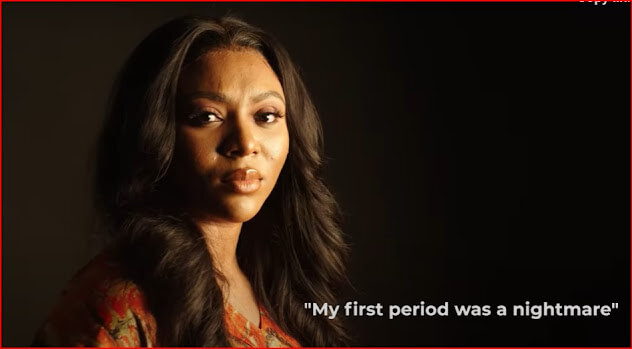
You Experience Debilitating Pain (During Your Period)
Like with irregular and heavy bleeding, people expect pain to come with periods. So sometimes, when a woman is visibly distraught by the pain she’s in, when it hurts so much she can’t walk, some people (read: women) turn their nose up at them and assume they are overreacting. Until you go through a quarter of the pain these women are in, you do not get to judge. You think because you have periods as well, you know their pain. You do not.
The women in this documentary delve deeply into what it truly means to be in pain, suffer severe menstrual cramps, exhaustion, unprecedented pain during sex, and so much more.
You’ve Experienced Unjust Judgement From Healthcare Practitioners
Before watching this documentary, I had a conversation with my colleagues about finding a panellist for a sex and sexuality workshop. Someone mentioned a pharmacist, and immediately, a few of us turned our noses up. We agreed that health practitioners were just too judgmental to seriously consider for the panel.
From immediately lecturing a young girl because you assume she’s sexually active, to telling women they should lose weight and think of having kids now, to so many audacious and absurd things that these people who are supposed to care for us said to these women, without meaning to, Where the Heck is My Period? revealed the open secret that is the judgemental and, in all honesty, wicked personalities of most healthcare practitioners.
” I don’t like people that use their periods as an excuse to get out of things and it’s probably not that bad. And even if it’s bad, there are people going through worse. A woman told me that. A doctor.”
Courtney John
The (Surprisingly)Valuable Addition of Healthcare Practitioners
After hearing all the women’s comments about health practitioners and considering all I know and have experienced, I found it slightly difficult to listen to or care about what the doctors in this documentary had to say. However, in between the enthralling and agonising stories, Coker-Aderinokun and Michael Akinrogunde expertly placed clips of healthcare practitioners clarifying details about the science behind this syndrome.
With the addition of priests, traditionalists, and health practitioners, we can see Coker’s attempt to be truly inclusive and thorough. We hear from the women who live this life, from the people who have the medical knowledge to help, and from important spiritual leaders in many Nigerians’ lives.
You Don’t Give Yourself Half the Grace You Deserve
If you’re a woman who is a little different from the way society says we should be, I know that just like every other person out there, you are hard on yourself and you do not know how to give yourself the grace you deserve (especially for things you have no control over). This film says I see you, I hear you, I am you. It shows women across the world that they are not alone. It tells women with PCOS that it is okay that you are always so tired, it is okay that you do not bleed every month, and it is okay that is a little harder for you to have children. This film tells them that it is not their fault and that they can drop that cross.
These are Real Women With Real Heartbreaking Stories
These stories will tug on your heartstrings so much that, at some point, the realization that these are real women with real stories can and did send a shard of pain straight through my heart. My eyes filled with tears as I heard their voices wabble and as they detailed the effects of their symptoms on their mental health and self-esteem. I raged as they recounted deaths, anger, and resignation. This documentary had one aim: to tell people what this ‘thing’ (PCOS) is, show them that it’s real and let them hear for themselves how it negatively affects countless women across the nation and the world at large. I felt and heard all of it. We all should.
This review is but a piece of the very important message this documentary reveals to the world. My words are not enough to stress the importance and relevance of pieces like this. It is important to tell our stories. It is important to share our knowledge. Women make up 49.6% of the world’s population. A problem that affects us affects everyone. A problem that affects our reproductive capabilities affects the status of the world’s population. A problem that affects our mental health is a problem that is worth being addressed.

